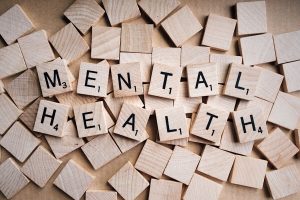Autism spectrum disorder (ASD) is a broad term used to describe a group of neuro developmental disorders. Similar problems regarding communications and social interaction. People with ASD often demonstrate restricted, repetitive and stereotyped interests or patterns of behavior. According to Centers for Disease Control and Prevention (CDC), autism occur more often in boys than in girls with a male-to-female ratio 4 to 1.
Different types of autism
Five different ASD sub-types:
- with or without accompanying intellectual impairment.
- with or without accompanying language impairment.
- Probably associated with a known medical or genetic condition or environmental factor.
- Similarly associated with another neuro-developmental, mental and behavioral disorder.
- May be linked with catatonia.
Autism can be linked with one of the following disorders:
- Autistic disorder.
- Asperger’s syndrome.
- Pervasive development disorder (PDD).
- Childhood dis-integrative disorder.
Symptoms
Autism symptoms typically become clear during early childhood between 12 and 24 months of age. Furthermore symptoms may also appear earlier or later.
Two Types:
- Problems with communication and social interaction:
- Issues with communication, may include difficulties sharing emotions, sharing interests or maintaining a back-and-forth conversation.
- Issues with nonverbal communication, trouble maintaining eye contact or reading body language.
- Difficulties developing and also maintaining relationships.
2. Restricted or repetitive patterns of behavior or activities:
- Repetitive movements, motions, or speech patterns.
- Rigid adherence to specific routines or behaviors.
- Likewise an increase or decrease in sensitivity to specific sensory information from their surroundings; similar to a negative reaction to a specific sound.
- Due to fixated interests or preoccupations.
Causes of Autism
- Immediate similar family member with autism.

- As a result of genetic mutations.
- Fragile X syndrome and other genetic disorders.
- Being born to older parents with similar conditions.
- Low birth weight as a result.
- As a result Metabolic imbalances.
- Because of exposures to heavy metals and environmental toxins.
- Similarly history of viral infections.
- Due to Fetal exposure to the medications valproic acid (Depakene) or thalidomide (Thalomid)
Treatment
- Behavioral therapy
- Play therapy
- Occupational therapy
- Physical therapy
- Speech therapy
Alternative treatments
- High-dose vitamins.
- Chelation therapy, which involves flushing metals from the body.
- Hyperbaric oxygen therapy.
Finally, genetic and environmental factors determine whether a person develops autism. Above all therapies and other treatments can help people feel better or alleviate their symptoms.























